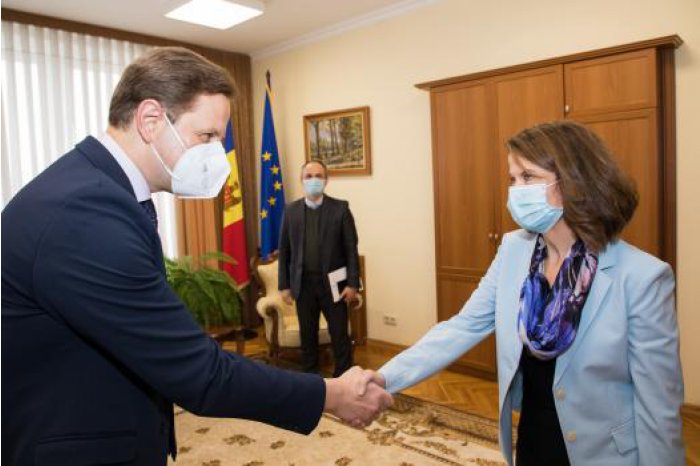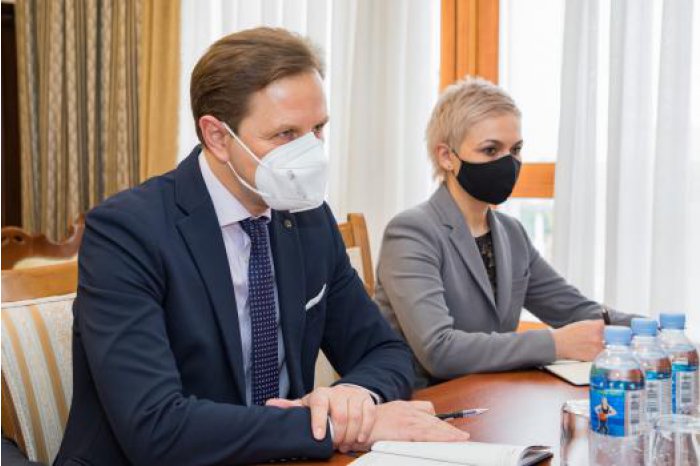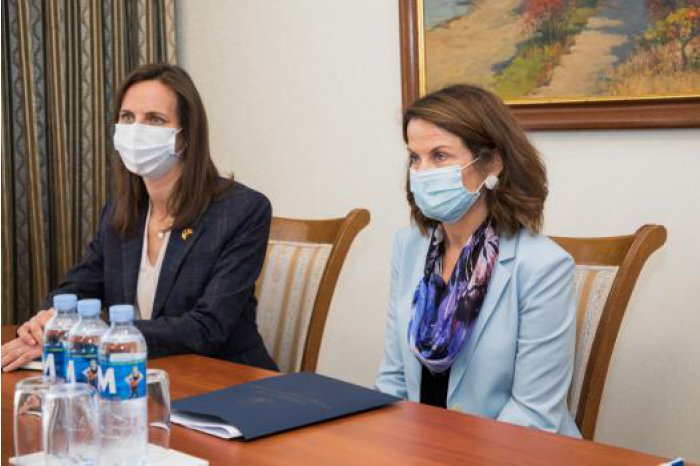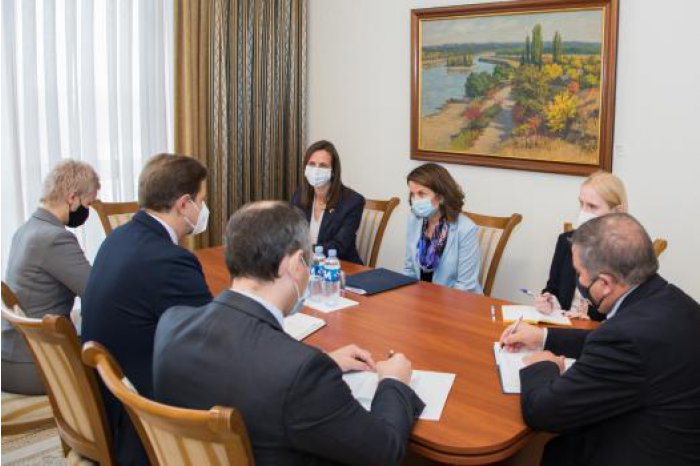Moldovan deputy premier has meeting with U.S. assistant secretary of state
17:58 | 05.10.2021 Category: Official
Chisinau, 5 October /MOLDPRES/ - The latest developments and perspectives of solving in the Transnistrian process settlement were tackled at a 4 October official meeting between Deputy Prime Minister Vlad Kulminski and United States Assistant Secretary of State for Central and Eastern Europe Robin Dunnigan, the Reintegration Policies Bureau has reported.
Vlad Kulminski thanked the United States for support and involvement in the democratic processes of Moldova.
Referring to the security challenges in the region, the deputy prime minister noted that Moldova wanted stability and the Transnistrian settlement must be approached peacefully and politically, in order to get a final solution, with the observance of the country’s sovereignty and territorial integrity.
The deputy PM stressed that Chisinau showed maximal openness and willingness to identify solutions to the problem faced by the transport means carrying goods and passengers from the Transnistrian region. First of all, Chisinau tried to postpone the introduction of the decision for these categories of transport means, in order to identify a sustainable solution.
The deputy prime minister said that the protocol decision from 24 April 2018 and other documents within the process of negotiations did not contain commitments to provide neutral registration plates to the freight and passenger transport. The 2018 protocol decision includes commitments to release neutral plates to the categories enumerated in its content – private vehicles, motorcycles and tows which do not carry out commercial activities. And they boil down to this. Both the mediators and the international observers agree with this approaching of the issue, that there is no solution within the current mechanism.
At the same time, Chisinau is perfectly aware of the fact that the transport operators from the Transnistrian region face serious difficulties dealing with the impossibility to enter the territory of Ukraine. For humanitarian reasons, in order not to create problems to people and their well-being, Moldova is prepared to find an immediate solution, which is stipulated in documents within the process of negotiations and do this as quickly as possible and without consequences for the transport operators. Chisinau is willing to give possibility to release, in facilitated conditions, plates for these vehicles, so that they can further participate in the traffic.
Thus, Chisinau proposed a simple approach, which found understanding on behalf of the transport companies – to immediately, urgently solve the problem emerged. Chisinau proposed a quick solution – to receive plates as an exception, in a humanitarian approach. ‘’We are concerned about the fate of these people and we are willing to help them, to give them possibility to register these transport means, in facilitated conditions, by derogation, understanding that the incomes and the living standards of people depend on this,’’ Kulminski said.
At the same time, Chisinau is willing to work on a sustainable mechanism of solving the problem; yet, it is impossible to be elaborated in a short time, as the subjects of the commercial transport is related to a string of other topics – tariffs, competition environment, excise duties and other related subjects. The working out and formalizing such a protocol is a comprehensive process.
The deputy prime minister voiced hope that rational compromises would be found, possible in the present conditions, by avoiding escalations in difficult regional circumstances, suggesting that rational, balanced and mature approaches be promoted in the process of negotiations, beneficial, first of all, to the people for which they are created.
Vlad Kulminski highlighted the willingness to settle the current problem and switch to the tackling of other problems on the agenda of the process of negotiations, as well as the fact that Chisinau is ready to carry out a round table in the 5+2 format.
In the context, the deputy PM said that all the current formats of talks would be maintained functional and interactive, which through their work, will lead to a continuous and pragmatic dialogue, thus creating a friendly ground for starting discussions on the institutional and political basket of the 5+2 format of negotiations.
At the same time, the participants in the meeting tackled also other topical subjects, such as the observance of human rights, ensuring the freedom of movement, access to quality education and medical services.
The officials expressed willingness to deepen the cooperation on diverse aspects of mutual interest.
Photo: Reintegration Policies Bureau




